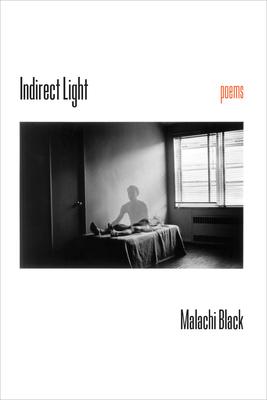Reliving the overdoses of beloved friends, Malachi Black closes this book's opening poem with a resuscitating command: "Doctor, / turn back. One of us lives." Indirect Light is a testament to and apologia for this assertion of vitality, each eponymous poem an elegy dedicated to one of Black's dearly departed. Though this book mourns an irretrievable past, it wages war against amnesia, refusing to let death erase the vibrancy of their lives. These poems preserve "the breath we left beside us on the train tracks," "the watery inscriptions of nearby dogwood branches / dipped in shade," "our bookbags' mouths / pouting open on our laps," "our street-scabbed bodies / briefly tinseled in the sun."
Insofar as this collection returns to friends and kin to honor them by the indirect light of memory, it also seeks to memorialize the author's personal experience of adolescence and addiction amidst the opioid epidemic. It is a lament for all that's lost and a paean to the near misses and the just enough: a dim glow you can see by, a cup of coffee passed during NA, a prayer during detox to "be // as empty / as the sky" if floating means survival.
